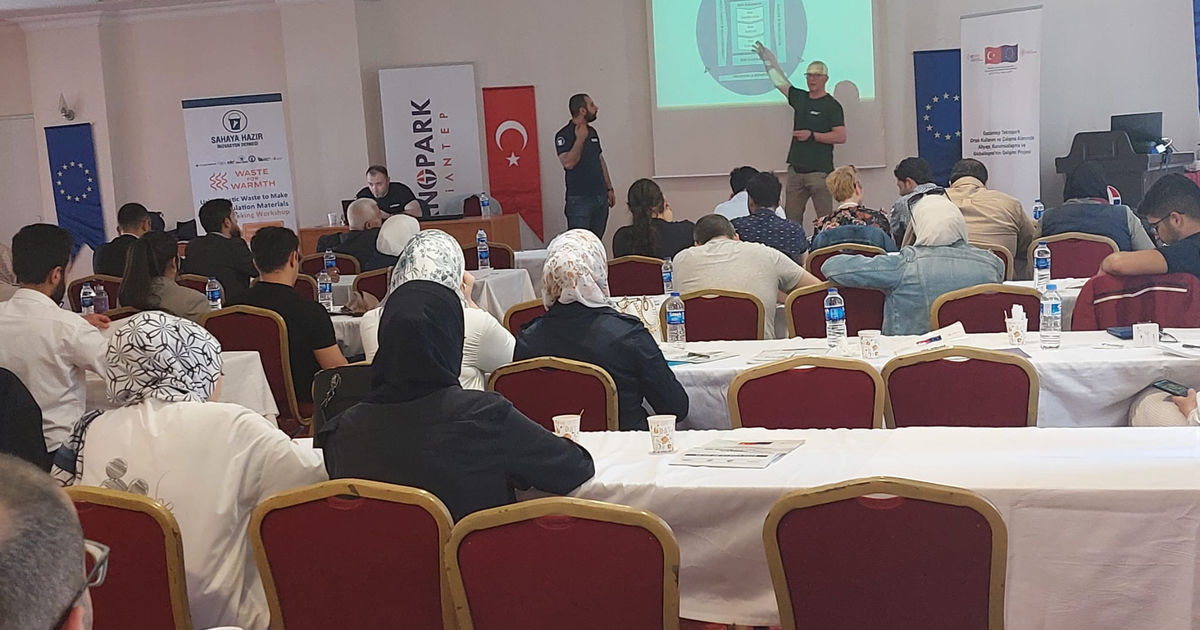Waste for Warmth er IUG’s humanitære innovasjonsprosjekt med partnere Field Ready og The Polyfloss Factory. Fra 2020 har vi jobbet sammen med partnerne for å utvikle og teste en ny tilnærming til vinterisolering av telt i flyktningeleire. Isolasjonsprodukter fremstilles av resirkulert plast ved hjelp av Polyfloss-teknologi, en prosess som ligner på sukkerspinnsproduksjon. Ved å resirkulere plastavfall lokalt utviklr vi isolasjonsprodukter for varme og trygge telt i flyktningeleirer, samtidig som arbeidsplasser skapes for mennesker på flukt. Les mer om prosjektet her.
Informasjon om oppdraget
Som en del av Waste for Warmth-prosjektet har det blitt identifisert behov for en sikkerhets- og risikovurdering av polyflossmaskinen for å sikre at maskinen kan brukes av operatører i leirene på en sikker måte. Denne rapporten beskriver den utførte vurderingen, inkludert metoder som er brukt, deltakere, identifiserte farer og nødvendige tiltak for å sikre sikker bruk av maskinen.
Oppdraget ble utført med Sahaya Hazir (Field Ready), en prosjektpartner for Avfall for varme, lokalisert i Gaziantep, Tyrkia.
The aim of the assignment was to look at health, safety and environmental factors associated with the polyfloss machine to ensure that the machine can be used by operators in the safest possible way.
Waste for Warmth is EWB's humanitarian innovation project with partners Field Ready and The Polyfloss Factory. Since 2020, we have worked with our partners to develop and test a new approach to winter insulation of tents in refugee camps. Insulation products are made from recycled plastic using Polyfloss technology, a process like cotton candy production. By recycling plastic waste locally, we develop insulation products for warm and safe tents in refugee camps, while creating jobs for displaced people. Read more about the project here.
Information about the assignment
As part of the Waste for Warmth project, a need has been identified for a safety and risk assessment of the polyfloss machine to ensure that the machine can be used by operators in the camps safely. This report describes the assessment performed, including methods used, participants, identified hazards and necessary measures to ensure safe operation of the machine. The assignment was carried out with Sahaya Hazir (Field Ready), a project partner for Waste for Heat, located in Gaziantep, Turkey.
The full report can be downloaded from the menu on the right.


